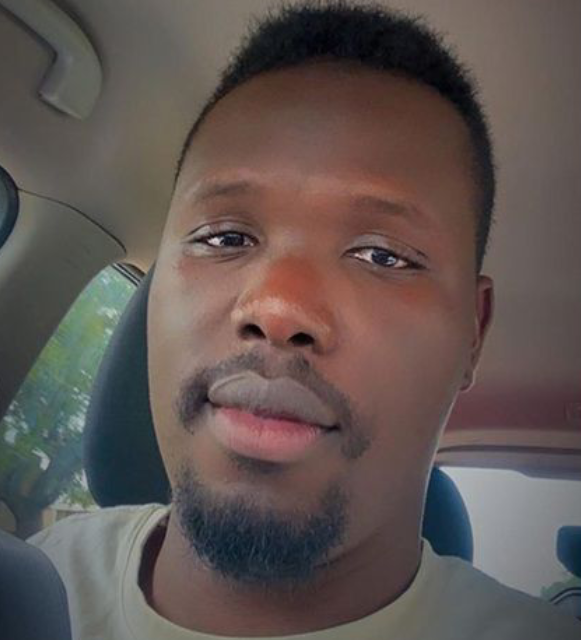
“Don’t Marry an Oyibo Woman Unless You’re Ready to Unlearn Everything” – Nigerian Man Sparks Debate with Raw Marriage Confession

The internet was thrown into heated conversation after a Nigerian man, Ifeanyi Eze, boldly warned men against marrying white women unless they are prepared to unlearn deeply rooted cultural values and expectations. In a candid post that has since gone viral, Eze shared his personal experience as a Nigerian married to an oyibo wife, painting a raw and sometimes humorous picture of the cultural clashes that unfold when tradition meets a more egalitarian lifestyle.
“Don’t marry oyibo woman. Otherwise, you will have to unlearn a lot,” Eze began, setting the tone for a narrative that many Nigerians at home and in the diaspora could either relate to or find controversial. He recounted one of his earliest culture shocks when he visited his wife’s uncle during a family gathering. To his utter surprise, it was the uncle himself – a man – who was in the kitchen cooking for the entire family while his wife, daughter, daughter-in-law, and even Eze’s own wife sat comfortably, waiting to be served. “They didn’t see anything wrong with that,” he explained, noting that in his hometown of Enugu, such a scene was not only rare but almost unthinkable.
In Nigeria, and across many African societies, gender roles are sharply defined. Men are rarely seen handling pots and pans during major events if women are present. That duty, for generations, has been regarded as a woman’s natural responsibility, while men handle external matters. The image of a respected uncle cooking for a crowd, without fuss, shook Eze’s cultural foundation. After the meal, when the uncle casually gathered everyone around the dining table for food and conversation, it drove home the reality of how differently Western families operate.
Eze said he turned to his wife and made it clear that such an arrangement could never happen back in Enugu. “Men don’t run around the kitchen during events when women are there. We have different cultures,” he stressed. For him, this was only the beginning of the many adjustments and compromises he would have to make in his marriage.
His account highlighted a fundamental issue faced by couples in intercultural marriages: the clash of traditions, values, and unspoken social codes. For Eze, small details mattered, especially around respect and hierarchy. He warned his wife that in his culture, certain greetings and forms of address are non-negotiable. “I’ve told my wife that she can’t address Umuada or her Nwunyedi Age Grade group as ‘you guys.’ Neither will she greet Mothers’ Union with ‘hi everyone.’ To us, it’s disrespectful. What happened to ‘ndi nne, maa mma… isokwa!’” he asked rhetorically, underscoring the importance of cultural etiquette and how even language carries deep meanings of honor and reverence in Nigerian society.
But perhaps the most telling part of his confession was his blunt assessment of household responsibilities. Eze humorously described the long list of roles he now finds himself performing as a husband to an oyibo wife: singer, cheerleader, massage therapist, part-time chef, dog walker, cleaner, storyteller, laundry man, trash disposer, shopping assistant, handyman, driver, financial planner—the list went on. For many Nigerian men, who are used to what he calls “entitled free labor” that their wives traditionally provide in the home, this adjustment is nothing short of revolutionary. “Also… if you marry oyibo, you will likely miss your entitled free labor that our women do. If you like no listen to me,” he warned.
To be clear, Eze was not outrightly complaining. He emphasized that his words were not meant to discourage love across cultures, but to serve as a reality check for men who believe marriage to a white woman will come without sacrifices. His experience highlighted a deeper truth: both partners in such marriages must be open-minded and willing to compromise, because what is considered normal in one culture may appear strange or even offensive in another.
His frankness sparked waves of reactions online, with many Nigerians debating whether his perspective was fair or simply steeped in patriarchy. Some agreed wholeheartedly, pointing out that African men raised in patriarchal systems often find it difficult to adjust to Western family dynamics, where chores and responsibilities are shared more equally. Others, however, argued that what Eze described was not a burden but the essence of true partnership in marriage, where love expresses itself in shared labor, mutual respect, and equality.
Critics pointed out that what he called “entitled free labor” is, in fact, an unfair expectation placed on African women who often juggle careers, children, and household duties without much help from their husbands. For them, the image of a man cooking or cleaning is not emasculating but necessary, a reflection of teamwork rather than a violation of cultural values. They argued that such patriarchal expectations are part of what fuels inequality and unnecessary suffering in African homes, and perhaps marrying outside the culture helps break down these rigid structures.
On the other hand, supporters of Eze’s point of view argued that culture cannot simply be discarded. For them, it is important to preserve traditions, particularly in matters of respect, greetings, and family hierarchy. They insisted that while compromise is essential, African men and women in intercultural marriages must ensure that their cultural identity is not diluted in the name of modernity.
Eze himself concluded his reflection with a biblical reference, quoting Ephesians 1:17, hinting that wisdom and understanding are essential when navigating such complex unions. For him, the journey of being married to an oyibo wife is not one of regret but one of constant unlearning, relearning, and adjusting. It is a reminder that love across cultures is beautiful but never without its challenges.
His story resonates far beyond his personal life. It touches on broader questions of identity, tradition, and the evolving dynamics of marriage in a globalized world. As migration and cross-cultural unions become more common, stories like Eze’s expose the negotiations that happen behind closed doors, where love meets tradition, and compromise becomes the bridge.
Whether one agrees with his views or not, Eze’s candor forces an important conversation. Should culture bend in marriage, or should marriage bend to culture? Can love alone sustain a union where traditions clash, or must both partners be ready to constantly navigate, negotiate, and sometimes surrender their expectations?
For now, his advice stands as both a caution and a lesson: don’t marry an oyibo woman unless you are ready to unlearn everything you thought you knew about marriage, respect, and responsibility. And perhaps, in the end, the real message is that whether oyibo or not, marriage itself demands unlearning, relearning, and the humility to accept that love is not always about what you expect, but what you give.


